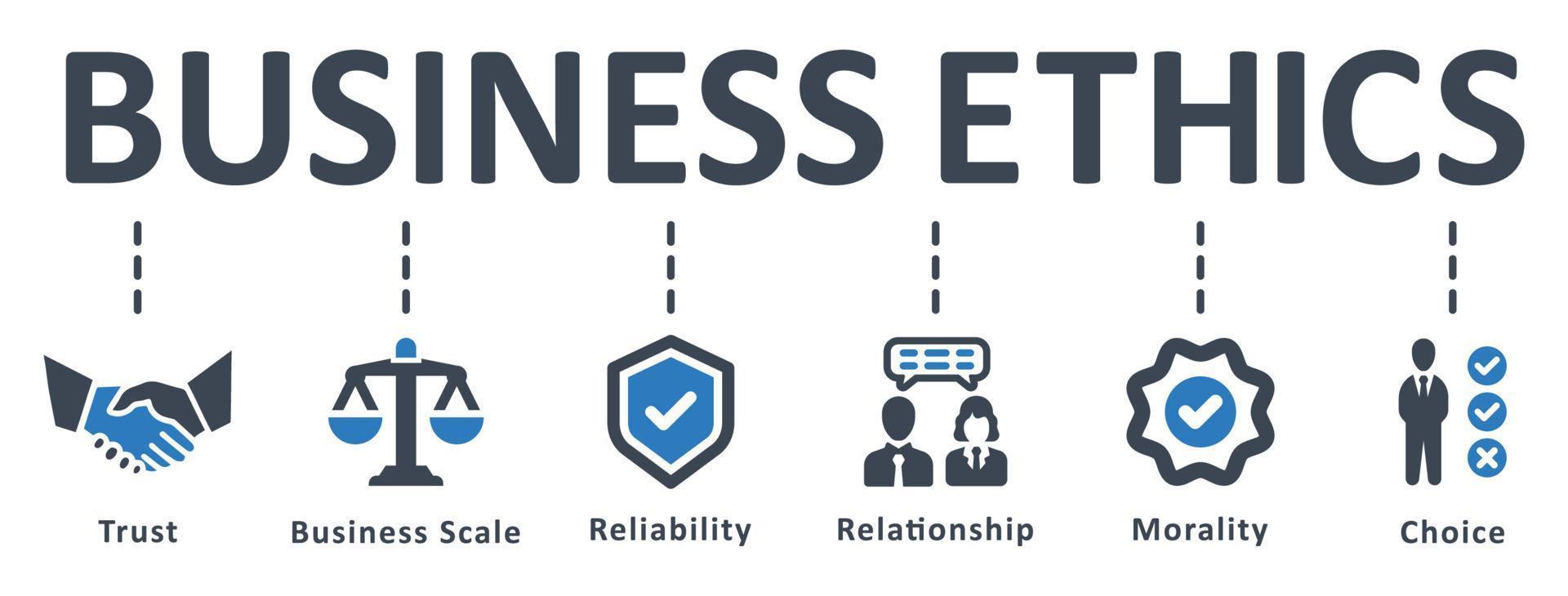As organizations strive for success and growth, it is their ethical choices and actions that ultimately shape their standing in the business world. In this comprehensive blog article, we will delve deep into the nature of business ethics, exploring its significance, key principles, and how it directly impacts an organization’s reputation. Our primary focus will be on the key phrase “ethics and business reputation,” as we uncover the symbiotic relationship between the two.

Defining Business Ethics
Business ethics, at its core, refers to the moral principles and values that guide the decisions, behavior, and actions of organizations and individuals within those organizations. It serves as a compass that helps companies navigate the complex landscape of commerce and make decisions that align with their values and societal expectations.
1. Importance of Business Ethics
Ethical considerations in business are not merely idealistic or altruistic; they are essential for several reasons:
A. Trust Building
Ethical behavior fosters trust among all stakeholders, including customers, employees, investors, and partners. Trust is the foundation of long-term relationships and success in business.
B. Legal Compliance
Complying with ethical standards ensures that an organization adheres to legal regulations and avoids potential legal disputes and penalties.
C. Risk Mitigation
Ethical decision-making can help avert crises and scandals, reducing the risks associated with damaged reputation and financial losses.
🎯 Get My FREE YouTube Growth Guide!

2. Principles of Business Ethics
To understand the nature of business ethics, it is crucial to grasp the key principles that guide ethical decision-making:
A. Transparency
Being open and honest in all business transactions and communications.
B. Integrity
Upholding moral and ethical standards, even in the face of adversity.
C. Fairness
Treating all stakeholders equitably, without bias or discrimination.
D. Accountability
Taking responsibility for one’s actions and their consequences.
E. Respect
Valuing the dignity and rights of all individuals, both inside and outside the organization.
Ethics and Business Reputation
1. The Symbiotic Relationship
Ethics and a company’s image work together to help each other, with one having a big effect on the other. The reputation of a business is a direct reflection of its ethical conduct, and, in turn, a company’s reputation can influence its ethical choices.
Business reputation, often considered the intangible asset of a company, is built on a foundation of trust and credibility. It is the public perception of an organization’s character and behavior. When a company is consistently ethical, its reputation tends to be positive, enhancing its appeal to stakeholders.
On the flip side, unethical conduct can tarnish a business’s reputation, leading to trust erosion and a potentially severe impact on its financial performance.
2. Impact of Ethics on Reputation
A. Customer Trust
Customers are more likely to support businesses they trust. Ethical behavior assures customers that their interests and well-being are prioritized, which, in turn, builds loyalty.
B. Employee Engagement
Ethical companies tend to attract and retain top talent. When employees feel that they work for an ethical organization, it boosts their morale, job satisfaction, and productivity.
C. Investor Confidence
Investors are cautious about where they allocate their capital. Ethical businesses are seen as more stable and less risky, attracting a larger pool of potential investors.
D. Brand Image
An ethical reputation enhances the brand image of a company. This makes it easier to market products or services and, in some cases, command premium prices.
3. Impact of Reputation on Ethics
Reputation not only reflects but also influences a company’s ethical choices:
A. Public Scrutiny
A strong reputation can subject a business to more significant public scrutiny. This can motivate the company to uphold high ethical standards to maintain its positive image.
B. Stakeholder Expectations
As a business’s reputation grows, so do the expectations of stakeholders. To meet these expectations, companies often make a conscious effort to enhance their ethical practices.
C. Competitive Advantage
An ethical reputation can be a competitive advantage, pushing companies to maintain their ethical course to stay ahead of rivals.
Challenges and Dilemmas in Business Ethics
While the principles of business ethics are clear, the real-world application is often complex. Companies frequently face challenges and ethical dilemmas that require careful consideration.

1. Balancing Profit and Ethics
One of the most common dilemmas in business ethics is the struggle to balance profit and ethical considerations. In a competitive market, companies may be tempted to cut corners or compromise on ethical principles to boost profits. This can have significant consequences for their reputation.
2. Cultural and Global Differences
As businesses expand globally, they encounter different cultural norms and ethical standards. Navigating these differences while maintaining a consistent ethical framework can be challenging.
3. Supply Chain Ethics
Companies often face ethical challenges in their supply chains, especially when dealing with suppliers in countries with lax labor or environmental standards. Ensuring ethical behavior throughout the supply chain is crucial for reputation management.
4. Technological Ethics
With the rise of technology, ethical concerns related to data privacy, cybersecurity, and artificial intelligence have become paramount. Companies must adapt their ethical framework to address these modern challenges.
Ethical Success Stories
To further illustrate the connection between ethics and business reputation, let’s explore a few success stories of companies that have thrived by prioritizing ethics.
1. Patagonia
Patagonia, the outdoor clothing company, is renowned for its commitment to environmental and social responsibility. Their ethical stance on sustainability and corporate activism has helped them build a loyal customer base and a strong reputation for being a socially conscious business.
2. Microsoft
Under the leadership of Satya Nadella, Microsoft has undergone a significant ethical transformation. The company’s emphasis on privacy, cybersecurity, and accessibility has positively impacted its reputation, making it one of the most trusted tech giants.
3. The Body Shop
The Body Shop, a cosmetics and skincare retailer, has consistently upheld ethical principles, including animal cruelty-free products and fair trade sourcing. This ethical commitment has not only resonated with customers but also contributed to the company’s success.
Strategies for Enhancing Business Ethics and Reputation
Maintaining a strong ethical foundation and a positive business reputation requires a concerted effort. Here are some strategies for businesses to achieve this:
1. Develop a Code of Ethics
Establish a clear and comprehensive code of ethics that outlines the values, principles, and expectations for all stakeholders.
2. Ethical Leadership
Ensure that leaders and top management exemplify ethical behavior. Their actions set the tone for the entire organization.
3. Ethics Training
Provide regular training and awareness programs for employees to reinforce ethical conduct.
4. Continuous Improvement
Regularly assess and update ethical practices to align with evolving societal norms and expectations.
5. Stakeholder Engagement
Engage with stakeholders to understand their concerns and incorporate their feedback into ethical decisions.
Conclusion
The nature of business ethics is rooted in the principles of transparency, integrity, fairness, accountability, and respect. It is not a mere abstraction but a tangible force that shapes the reputation and success of companies. As we’ve explored in this article, ethics and business reputation are intertwined, each influencing the other in a dynamic and symbiotic relationship. By prioritizing ethical behavior, businesses can build trust, gain a competitive edge, and contribute positively to society, ensuring long-term success and prosperity.
In an era where businesses are held to increasingly higher ethical standards, it is imperative to understand the profound impact of ethics on business reputation and, conversely, how a positive reputation can serve as a powerful incentive for ethical decision-making.







